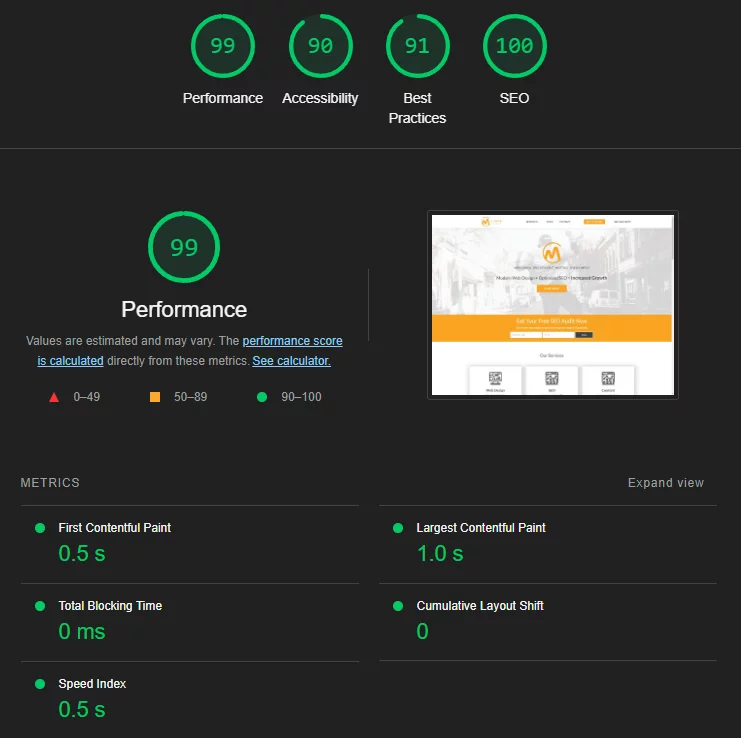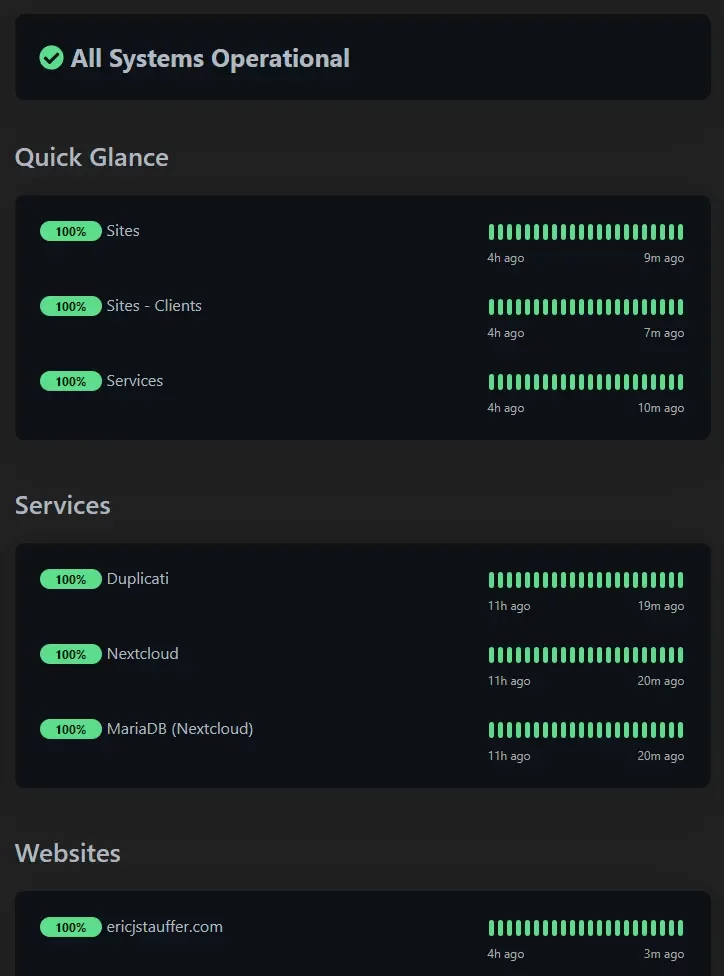Website Speed Matters
Optimizing websites to outperform the competition and drive more business.

*Actual Results
Why Website Speed is Important
- User Experience (UX)
Fast-loading websites provide a better user experience and encourages longer visits. - Search Engine Optimization (SEO)
Google prioritizes faster websites, improving your site's SERP ranking. - Conversion Rates
Websites that load quickly have higher conversion rates on leads, sales and newsletter signups. - Bounce Rates
Slow-loading sites have higher bounce rates and less interaction. - Mobile User Experience
Cell networks can be slow, and mobile visitors make up over half the daily internet traffic. - Brand Perception
A fast site reflects positively on your brand, showing that you value the user's experience. - User Retention
Users come back to fast sites. They avoid slow ones like the plague. - Cost Efficiency
Faster websites use less data, which can reduce hosting costs for large properties. - Ad Revenue
If your website relies on ad revenue, a faster site leads to more page views and ad impressions.
Down Time = Bad Time
Website & Service Monitoring to keep everything going full-steam ahead.

Why Monitoring is Important
- Uptime Assurance
Continuous monitoring ensures that your website or service is always available. - Problem Detection
Monitoring allows for the instant detection of outages or performance issues. - Performance Optimization
Monitoring can help identify patterns or recurring issues that affect performance. - Security Vigilance
Detect unusual activities that may indicate a security breach, such as unexpected traffic spikes. - Data-Driven Decisions
The data from monitoring can inform strategic decisions, like when to scale or upgrade. - Customer Satisfaction
Ensure services are consistently available and contributes to a positive user experience. - Resource Management
Allocate resources to ensure cost-effectiveness without compromising performance. - Compliance and Reporting
Monitoring provides reports and logs to demonstrate compliance when required by law. - Reputation Management
Frequent downtimes or performance issues can harm a brand's reputation.
